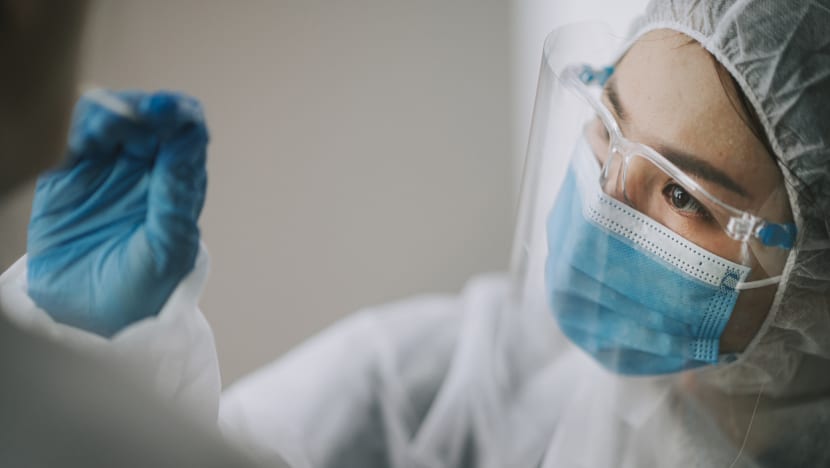Review of junior doctors’ work hours among steps to improve healthcare workers’ well-being

SINGAPORE: A review of junior doctors’ work hours is among steps being taken to improve the well-being of healthcare workers, Senior Minister of State for Health Koh Poh Koon said on Wednesday (Mar 9).
The challenges faced by healthcare workers have been in the spotlight since COVID-19 broke out. But even before the pandemic, an ageing population and chronic diseases have increased demand for healthcare manpower, Dr Koh said during his ministry’s Committee of Supply debate.
One specific group of concern is junior doctors, who do long shifts on night calls, he said.
Singapore Medical Council guidelines stipulate that junior doctors may work up to 80 hours a week, including overnight duties of no more than 24 hours, with up to six hours after for handover and training. This is benchmarked against the US’ Accreditation Council for Graduate Medical Education’s recommendations.
However, surveys showed that 20 per cent of all junior doctors exceeded the stipulated 80-hour work week. This could be due to the nature of clinical work in certain departments or exigencies of service, Dr Koh said.
“The stresses faced by junior doctors today are symptomatic of a wider need for transformation in the current care delivery arrangements,” he said. “Whether it is 24-hour or 30-hour shifts, what is clear is that we should not stretch our junior doctors beyond what is physiologically possible and what would risk compromising patient safety.”
But he cautioned that a “simplistic” framing of the issue as just work hours is not diagnosing the root cause of the problem.
As a first step, MOH has formed a national wellness committee for junior doctors, Dr Koh said.
Co-led by senior doctors from the healthcare clusters and MOH, the committee aims to review and recommend changes to existing healthcare practices and guidelines.
It will look at improving the well-being of junior doctors in three main areas – workflow models and work hour norms, career development and training, and promoting a culture where they feel safe in speaking out on matters related to their safety and wellness.
“The issues are complex and seek to change years of established practice,” Dr Koh said, adding that MOH aims to put forth the preliminary recommendations by the middle of this year “so that some immediate measures can be implemented”.
Final recommendations are expected to be completed by early next year.
MOH is also working with healthcare clusters to review and improve employee feedback channels, he said. There are also plans to appoint a wellness officer in every cluster to oversee and develop the system changes needed.
It is reviewing staffing norms in the public healthcare system to strengthen its resilience to future shocks and better cope with fluctuations in workload, Dr Koh added.
TRIPARTITE GROUP AGAINST ABUSE
Amid a growing number of cases of abuse of healthcare workers, MOH will establish a tripartite workgroup in a bid to improve the situation.
The workgroup will spearhead a coordinated national effort to prevent the abuse and harassment of healthcare workers in the public, private and community care sectors.
It will include representatives from MOH, the Healthcare Services Employees’ Union, public healthcare clusters, community care partners and private healthcare providers.
Cases of abuse and harassment increased from 1,080 in 2018 to 1,500 in 2021, although the actual number may be higher, Dr Koh said.
“Many healthcare workers exercise empathy and therefore do not always take a legalistic approach and report and escalate every altercation,” he said.
“However, their compassion should not be misconstrued as an acceptance of abuse or harassment. We need to make sure that our healthcare workers feel safe in their work environment.”
Dr Koh said that in recognising healthcare workers, MOH has extended the COVID-19 Healthcare Award to outsourced employees, including cleaners and security officers who were directly contracted by the public healthcare institutions and publicly funded community care organisations.
“But the biggest encouragement to our healthcare workers must come from the support and appreciation from Singaporeans-at-large whom they serve,” he added.

















